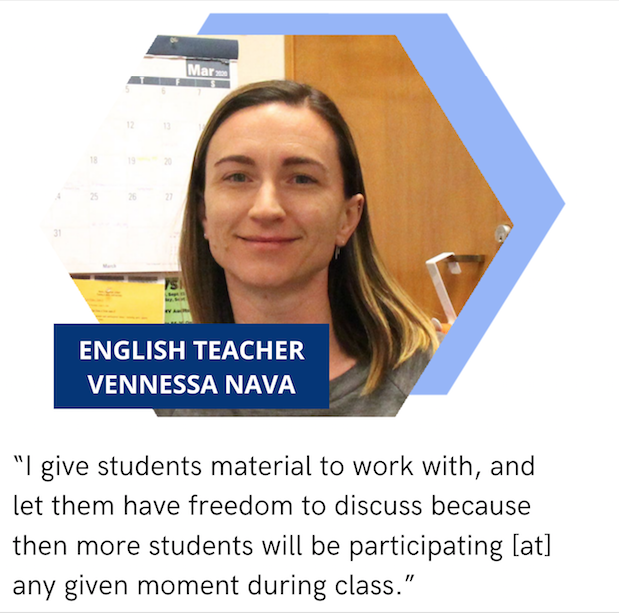Every Voice Matters
Communication and public speaking are important skills to learn and practice in the classroom
March 11, 2020
Whenever an upcoming presentation or Socratic seminar is introduced, a collective groan is often heard from a portion of the class. And while it is simply an excuse to complain about the amount of work for some, it is a serious concern for others. Of course, it is typical to feel nervous in situations where we subject ourselves to the judgment of peers. When this anxiety starts to notably impact our performance, however, it often causes panic and distress — especially when it is reflected in our grades.
Therefore, it is no surprise that many have questioned the necessity of activities such as fishbowl discussions, which seem to favor sociable extroverts, as they blatantly disregard the preferences of less outgoing students.
Participation makes up a significant portion of one’s grade in classes such as English, and often depends on how comfortable students are with speaking out. As a result, those who are timid or taciturn by nature are automatically at a loss. After all, what may seem easy to one student can turn out to be a struggle for another, and it’s unfair to score a student’s performance in such a way.

At the same time, we must keep in mind the state standards that teachers must meet, which include an emphasis on speaking and listening. Teachers may choose to incorporate discussions in their curriculum because of requirements articulated by the Common Core English Language Arts standards, such as, “adapt[ing] speech to a variety of contexts and tasks, demonstrating command of formal English when indicated or appropriate.” They assign presentations because the students should learn to, “present information, findings, and supporting evidence clearly, concisely, and logically such that listeners can follow the line of reasoning and the organization, development, substance, and style are appropriate to purpose, audience, and task.”
These standards exist to help students develop skills they will likely need in life beyond high school. As daunting as it may seem to have prolonged discussions with people you hardly know, or to voice your opinions for the whole class to judge, it is important to recognize the necessity of verbal communication.
The subjects we learn in classes such as math and history are easily forgotten — hardly anyone remembers matrices, and only a few remember the dates of the battles from World War I. Concepts or facts such as these have little use outside the classroom. On the other hand, communication, which is enforced in these class discussions, is a crucial skill we need to learn and experience as it allows us to negotiate and form relationships.
Those who are unable to participate in such activities because of disorders such as social anxiety should talk to their parents and teachers in order to find solutions. One possible solution is to obtain a 504 plan with accommodations for participation, such as allowing students to participate in a one-on-one conversation with the teacher. Section 504 of the Rehabilitation Act is designed to provide equal opportunities for students with learning disabilities. In order to qualify for a 504 plan, the student must have a diagnosed disability that affects their performance in a specific aspect of school.

Teachers should remain considerate while guiding students, and promote an open mindset that allows us to realize the importance of communication. By stepping out of our comfort zone, we are able to adapt to the unfamiliar and grow to meet new expectations.
Less outgoing and introverted students have a different set of skills and strengths which give them the upper hand in many other areas. However, just like certain students must push themselves to solve math problems and focus in an academic environment, introverts will benefit from stepping out of their comfort zone and learning to converse with others.
We don’t need to be completely at ease with in-class presentations or discussions to do well. In fact, by learning how to deal with uncomfortable situations, we become prepared for college and beyond. We should devote our effort to refining these skills so that we can succeed at them when it is necessary. It is important to remember how the point of the standards isn’t to make students uncomfortable, but rather to help us succeed.




























